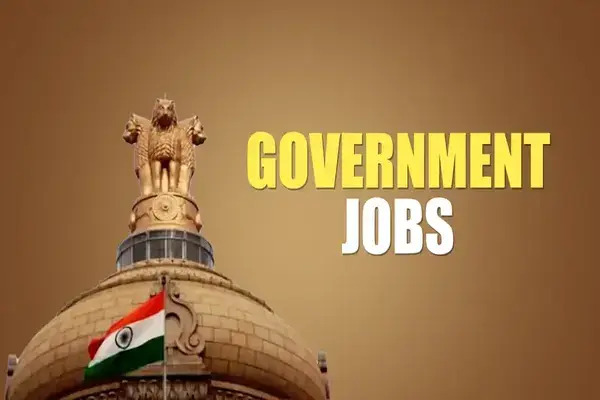Download Books, Notes and Study Material for KVS PGT GEOGRAPHY 2025 for Free. Stop paying for costly materials that provide no value, Instead download our targeted study material to streamline your preparation. We hope our material may help you in your journey to crack this exam.

KVS PGT Geography Syllabus 2025 – Overview
| Name of the Organization | Kendriya Vidyalaya Sangathan (KVS) |
| Conducting Board | KVS Careers 2025 |
| Name of the Posts | PGT |
| Total No. of Posts | Notified Soon |
| Apply Mode | Online |
| Job Location | anywhere in India |
| Category | Syllabus and Exam Pattern |
| 0Exam Mode | Online |
| Official Website | www.kvsangathan.nic.in |
Part I: General English :
1. Verb
2. Active Voice and Passive voice
3. Subject-Verb Agreement
4. Articles
5. Comprehension
6. Adverb
7. Error Correction
8. Sentence Rearrangement
9. Fill in the Blanks.
10. Unseen Passages
11. Tenses and its types
12. Vocabulary
13. Antonyms
14. Synonyms
15. Grammar
16. Idioms & Phrases
General Hindi :
1. Antonyms
2. Vocabulary
3. Fill in the Blanks
4. Error Detection
5. Translation of Sentences
6. Comprehension
7. Phrases/Muhavare
8. Error Detection
9. Grammar
10. Plural Forms etc
11. Synonyms
KVS TGT Part-II Syllabus :-
General Knowledge and Current Affairs :
1. Indian Constitution
2. Geography
3. Important Financial & Economic News
4. Economy
5. Important Days
6. Important books and authors
7. Science Invention, Discovery and technology
8. Budget and key Important Points
9. Current Affairs
Reasoning Ability :
1. Relationship concepts
2. Spatial Visualization
3. Theme Detection
4. Number Series
5. Verbal Reasoning
6. Essential Part
7. Alphanumeric Series
8. Coded Inequalities
9. Logical Deduction
10. Seating Arrangement
11. Statement and Argument
12. Coding-Decoding
Computer Literacy :
1. All about Computer Basics
2. Usage of Paint Brush
3. More in Paint
4.. About Desktop Important terms
5. Computer Peripherals
6. Word Processor
7. Formatting Word Document
KVS PGT Part III Syllabus 2025 (Perspectives on Education and Leadership)
(i) Understanding the Learner (10 questions) :
1. Concept of growth, maturation and development, principles and debates of development, development tasks and challenges
2. Domains of Development: Physical, Cognitive, Socio-emotional, Moral etc., deviations in development and its implications
3. Understanding Adolescence: Needs, challenges and implications for designing institutional support
4. Role of Primary and Secondary Socialization agencies. Ensuring Home school continuity
(ii) Understanding Teaching Learning :
1. Theoretical perspectives on Learning -Behaviorism, Cognitivism and Constructivism with special reference to their implications for:
1. Nature of teacher-student relationship
2. Choice of teaching methods
3. Classroom environment
xii. Understanding of discipline, power
Factors affecting learning and their implications for:
1. Designing classroom instructions
2. Planning student activities and
3. Creating learning spaces in school
Planning and Organization of Teaching-Learning
viii. Concept of Syllabus and Curriculum, Overt and Hidden Curriculum, curriculum organization
1. Competency based Education, Experiential learning
2. Instructional Plans: -Year Plan, Unit Plan, Lesson Plan
3. Instructional material and resources
xii. Information and Communication Technology(ICT) for teaching-learning
xiii. Evaluation: Purpose, types and limitations. Continuous and Evaluation, Characteristics of a good tool
xiv. Assessment of learning, for learning and as learning: Meaning, considerations in planning each
(iii) Enhancing Teaching Learning processes:
Principles of Comprehensive purpose and Reflections and Dialogues as a means of constructivist teaching
(iv) Creating Conducive Learning Environment :
1. The concepts of Diversity, disability and Inclusion, implications of disability as social construct, types of disabilities-their identification and interventions
2. Concept of School Mental Health, addressing the curative, preventive and promotive dimensions of mental health for all students and staff. Provisioning for guidance and counseling
3. Developing School and community as a learning resource
(v) School Organization and Leadership :
1. Leader as reflective practitioner, team builder, initiator, coach and mentor.
2. Perspectives on School Leadership: instructional, distributed and transformative
3. Vision building, goal setting and creating a School development Plan
4. Using School Processes and forums for strengthening teaching learning-Annual Calendar, timetabling, parent teacher forums, school assembly, teacher development forums , using achievement data for improving teaching —learning, School Self Assessment and Improvement
5. Creating partnerships with community , industry and other neighboring schools and Higher Education Institutes — forming learning communities
(vi) Perspectives in Education :
1. Role of school in achieving aims of education
2. NEP-2020: Curriculum and Pedagogy in Schools: Holistic & Integrated Learning; Equitable and Inclusive Education: Learning for All; Competency based learning and Education
3. Guiding Principles for Child Rights, Protecting and provisioning for rights of children to safe and secure school environment, Right of Children to free and Compulsory Education Act, 2009
4. Historically studying the National Policies in education with special reference to school education
5. School Curriculum Principles: Perspective, Learning and Knowledge, Curricular Areas, School Stages, Pedagogy and Assessment
Part IV: Geography :
1. Geomorphology
2. Climatology
3. Oceanography
4. Geography of Environment
5. Population and Settlement Geography
6. Population Geography
7. Settlement Geography
8. Geography of Economic Activities and Regional Development
9. Economic Geography
10. Agricultural Geography
11. Industrial Geography
12. Geography of Transport and Trade
13. Regional Development
14. Cultural, Social and Political Geography
15. Cultural and Social Geography
16. Political Geography
17. Geographic Thought
18. Geographical Techniques
19.Geography of India
KVS PGT Geography Exam Pattern 2025
Duration : 180 Minutes
| Parts | Subject | No.of Question | Marks |
| Part 1 | English | 10 | 10 |
| Hindi | 10 | 10 | |
| Part 2 | General knowledge & Current Affairs | 10 | 10 |
| Reasoning Ability | 05 | 05 | |
| Computer Literacy | 05 | 05 | |
| Part 3 | Perspectives on Education and Leadership | 40 | 40 |
| Part 4 | Concerned Subject (Geography) | 100 | 100 |
| Total | 180 | 180 |